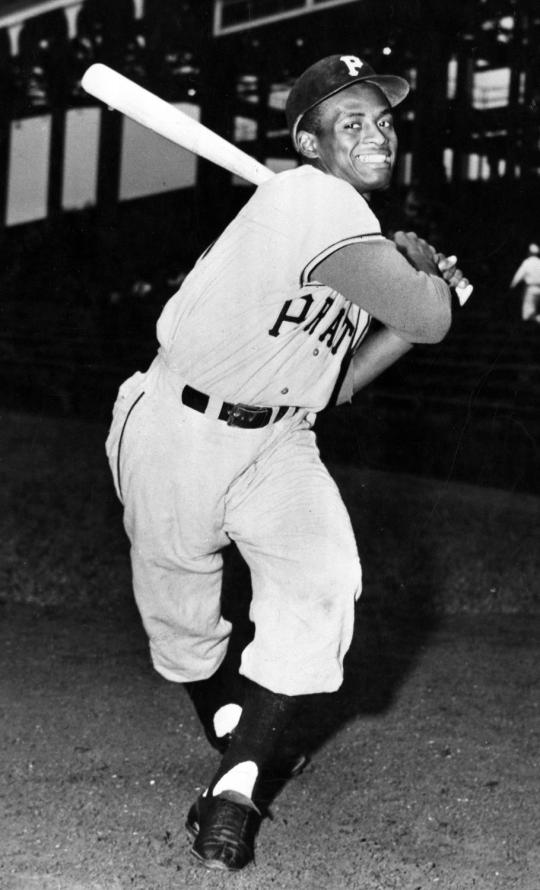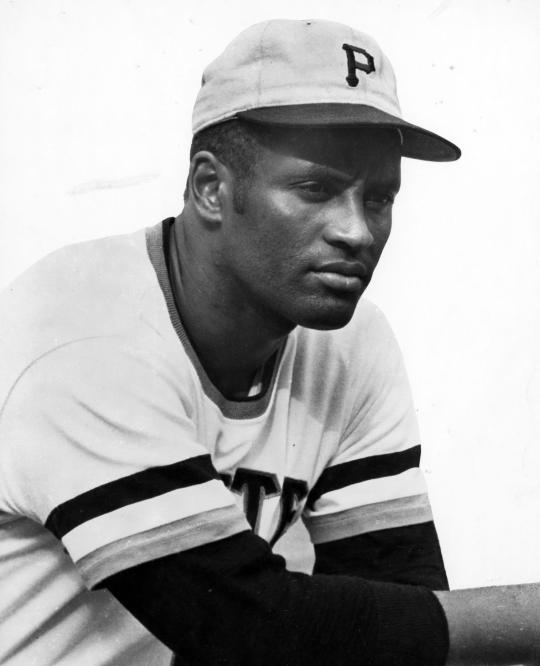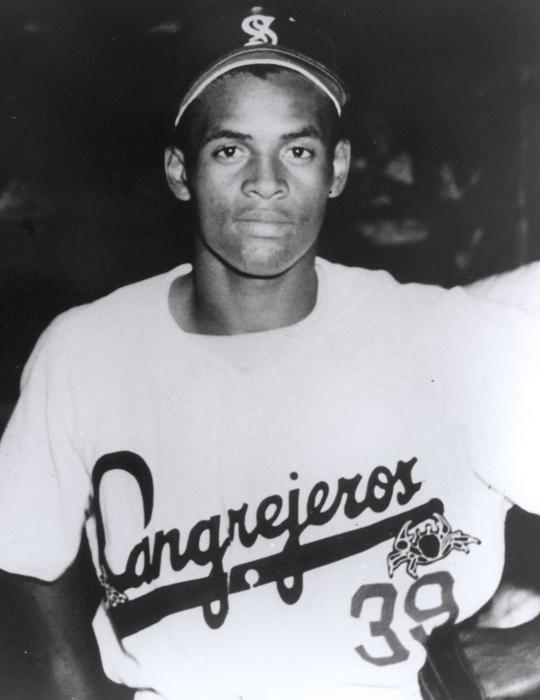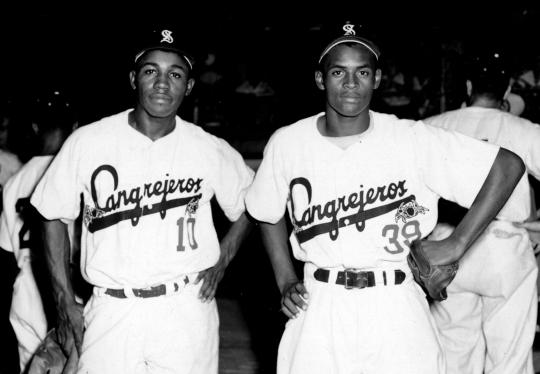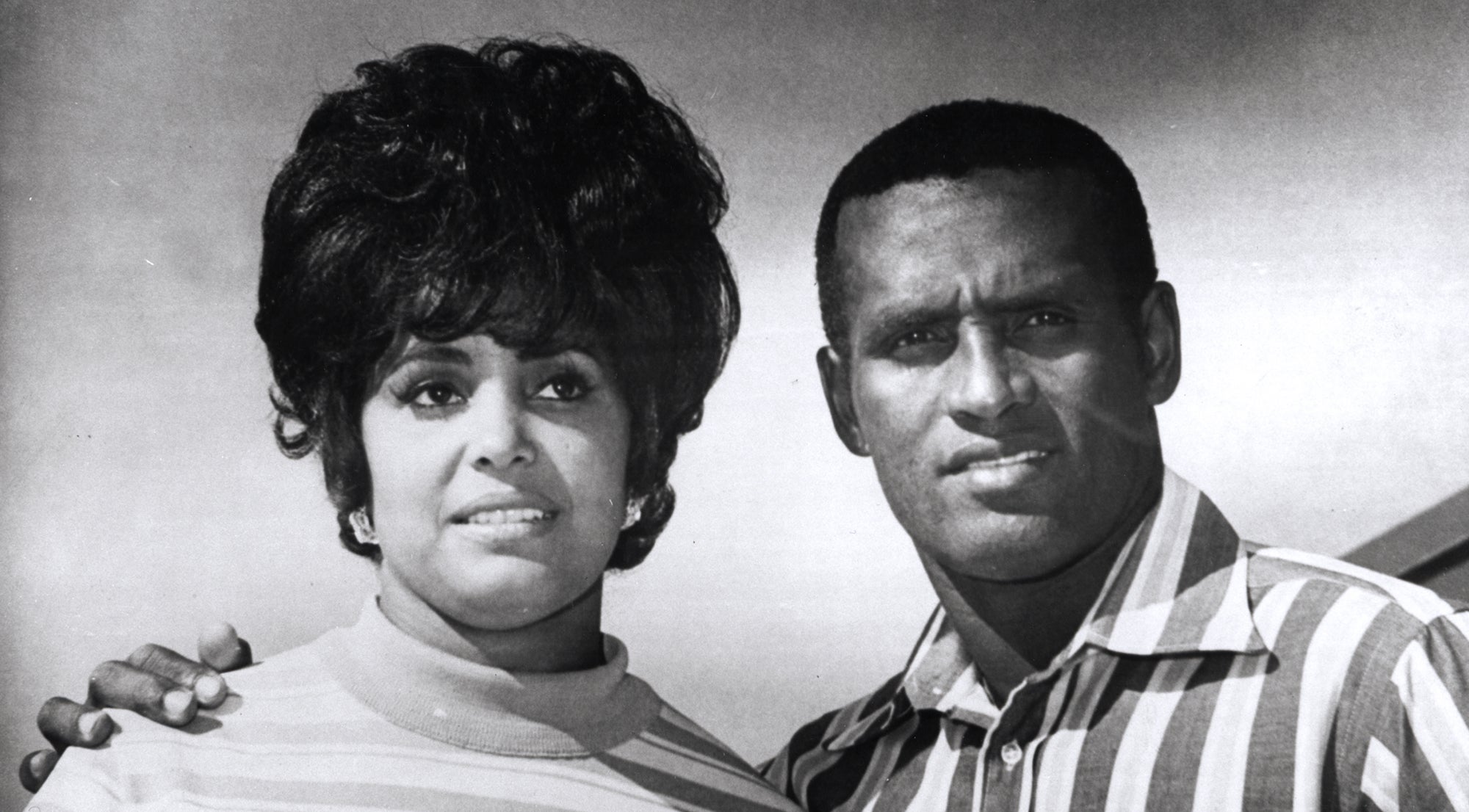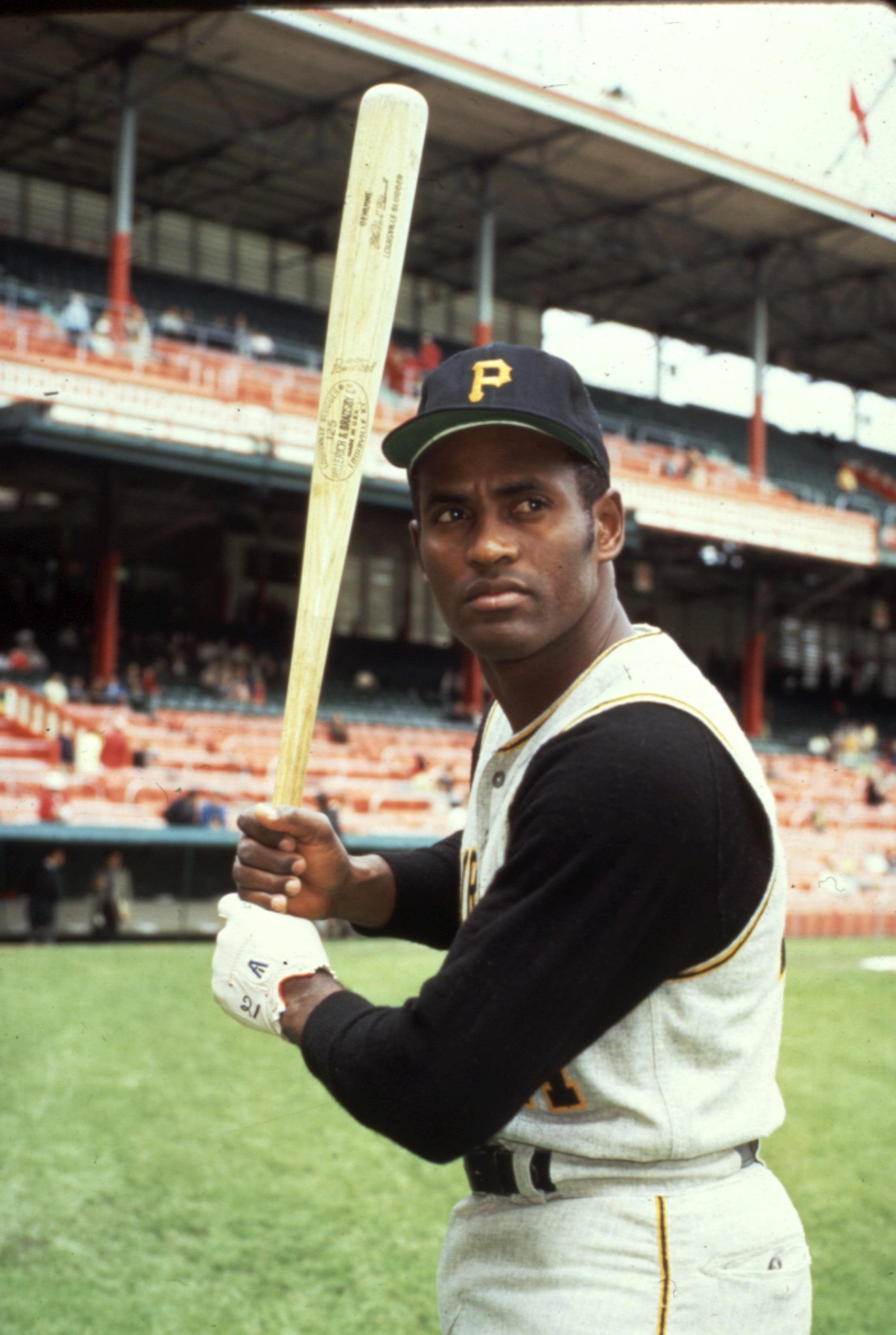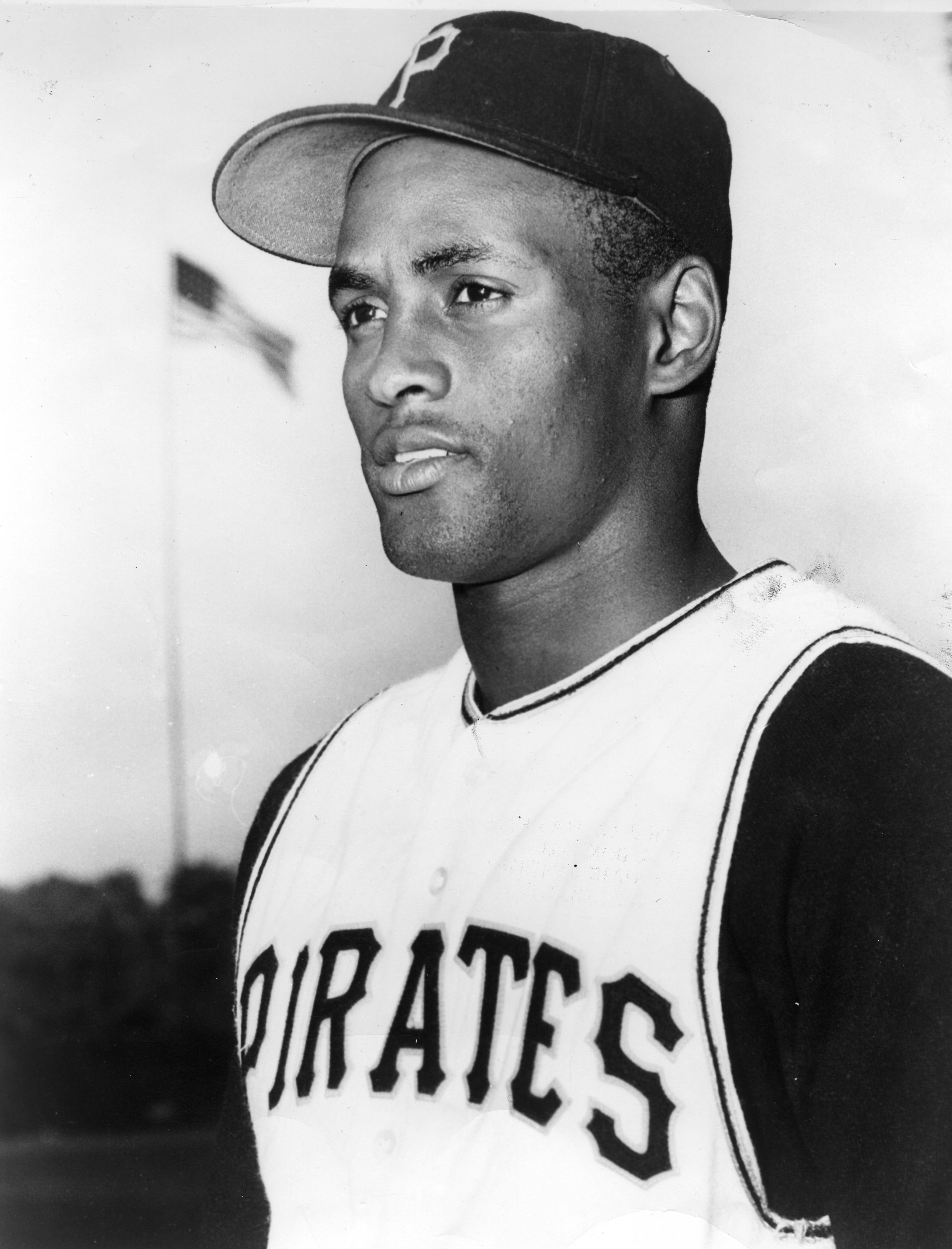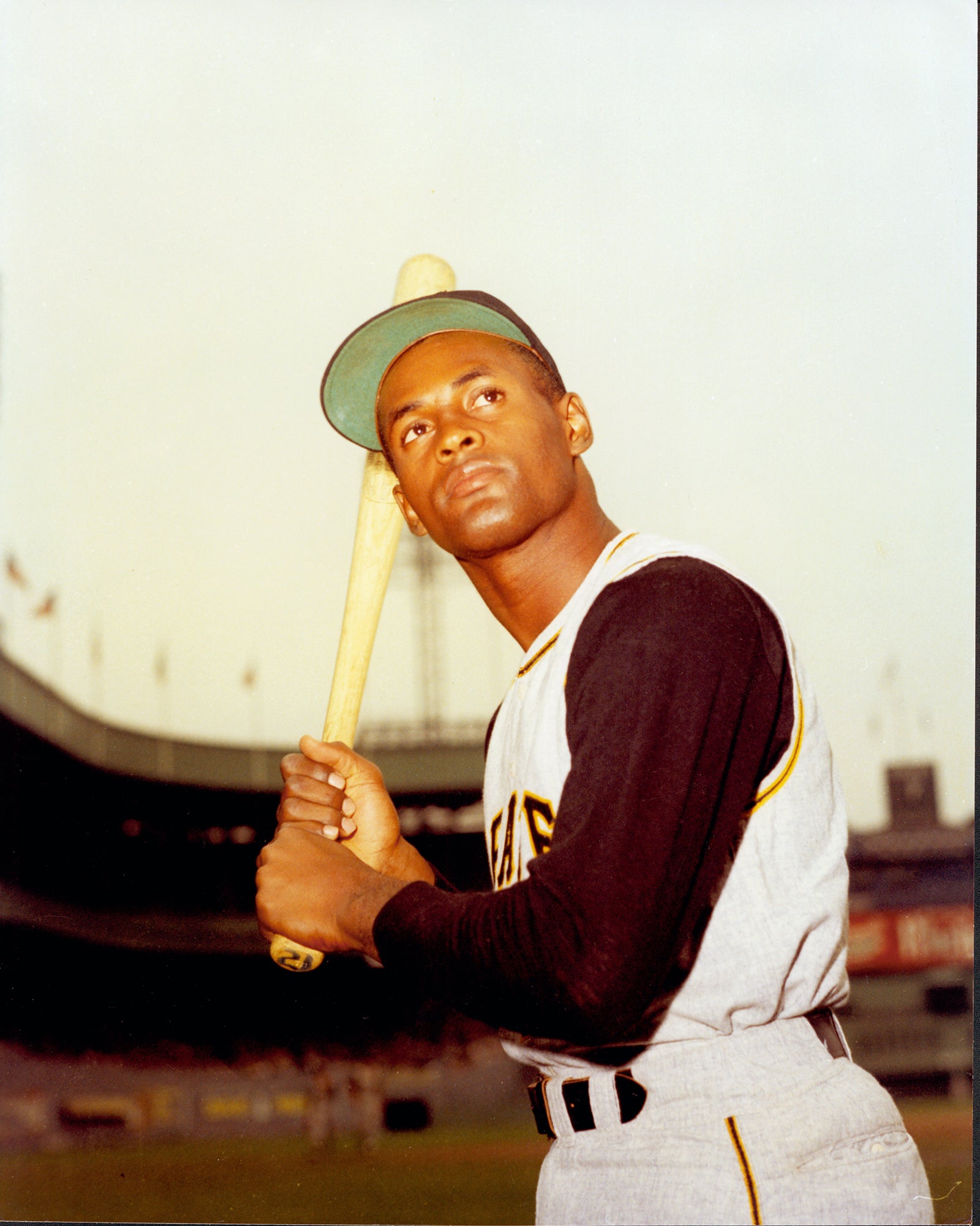- Home
- Our Stories
- Roberto Clemente’s destiny was shaped as a youngster in Puerto Rico
Roberto Clemente’s destiny was shaped as a youngster in Puerto Rico
While Roberto Clemente’s Hall of Fame playing career brought him the glory of world championships in 1960 and 1971, a cache of four National League batting titles and a 1966 MVP Award, his early life growing up in Puerto Rico was not so glamorous. Nor was it easy.
Born in the San Anton barrio of Carolina, a small town on the island, Clemente grew up in a family that was relatively poor, at least based on the economic standards of today. The large-but-crowded wooden house included Clemente, who was one of eight children.
“I would say that they could have been a little bit below middle income then,” explains Luis Mayoral, a close friend of Clemente who has gone on to a long career as a baseball official and journalist. “They weren’t poor poor because one thing Roberto was proud of, and he said it to me all the time, ‘I always wore clothing and I always had food at the table at home.’ They made ends meet.”
Compared with other Puerto Rican families of that era, the Clementes ranked as lower middle class in terms of economic wealth.
Clemente’s father, Melchor, made 45 cents a day as the foreman of a sugar cane plantation. His mother, Luisa, made less than that working as a laundress, among other jobs.
“My mother (had) to really work,” Clemente once told Pittsburgh broadcaster Sam Nover. “My mother used to get up at one o’clock in the morning. She had to work and make lunches for these people that used to work in the sugar cane plantation where my father worked. Now, my mother never went to a [theatrical] show. My mother, she didn’t [even] know how to dance.”
Luisa and Melchor’s extreme work ethic, along with a proper sense of priorities, strongly influenced the young Clemente. Melchor, in particular, preached discipline and loyalty. Realizing their strong values and willingness to make sacrifices, Roberto greatly respected his parents. In the Clemente house, Luisa and Melchor always made sure that their many children were fed first, particularly during the economic struggles that accompanied the years of World War II.
Even with their incomes spent largely on the basic necessities of life, with little left over for luxury items or entertainment, Clemente’s parents made life enjoyable for the family. At night, the family often gathered in the living room, where Luisa and Melchor told stories and jokes, keeping their children entertained while prompting plenty of laughter.
Roberto’s parents also made sure that their children dutifully attended school. As a student, the young Roberto was above-average, but not exceptional. Though his grades did not put him near the top of his class, he was very well-behaved in the classroom. Generally quiet and respectful, Clemente got along well with his classmates and his teachers.
At a very young age, it was clear that Roberto’s passion could be found in his love of playing ball. Beginning at the age of 5, he developed a habit of taking rubber balls and tennis balls and bouncing them against the walls and ceiling of the family house. And not long after, he took his ballplaying skills into the nearby backyards and sandlots.
“I started playing baseball in the neighborhood before I was old enough to go to school,” Clemente once told Dan Donovan of the Pittsburgh Press. “We would play all day and I wouldn’t care if we missed lunch. We played until it got so dark that we couldn’t see.”
Those late afternoons and early evenings of playing ball convinced the young Clemente that he was destined to pursue baseball as his career. “The more I think about it,” Clemente told Nover during their lengthy interview, “I’m convinced that God wanted me to play baseball.”
Roberto did not allow the lack of baseball equipment to prevent him from pursuing his passion. Like many of the neighborhood children, he had no extra money to purchase regulation bats and baseball balls. So he improvised. He fashioned a bat out of a limb from a Guava tree, which features a very hard and firm kind of wood. And he constructed a primitive glove out of a coffee bean sack. For a young boy who dreamed of bigger things to come, these kinds of improvised baseball tools would serve him well enough.
By the time that he was 8 years old, Roberto joined his first team. But it was not a baseball team. At the age of 8, he joined a neighborhood softball team. There Clemente played shortstop.
Roberto continued to play softball for the next several years. One day, a man named Roberto Marin, a salesman for the Sello Rojo Rice company, happened to be driving by. He stopped to watch the young boys playing, including Clemente. In observing Clemente for just a few minutes, Marin came away highly impressed with the boy’s athletic abilities. Marin later approached Roberto, asking him if he would play for his softball team, which was sponsored by Sello Rojo Rice.
It didn’t take long for Clemente to accept the offer and join Sello Rojo, which played in a league featuring slow-pitch softball. Marin supplied him with his first regulation baseball uniform. A special bond soon developed between Marin and Clemente. Marin became a mentor to his young friend. Years later, after Clemente’s first son was born, Roberto asked Marin to baptize the boy and serve as his godfather.
At first, Clemente played shortstop for Sello Rojo. With his powerful arm and his penchant for making dazzling plays in the field, Clemente earned selection to a special “Future Stars” competition, essentially the Puerto Rican equivalent of Little League or Babe Ruth League play. Although Roberto was only 14, his competition in Future Stars consisted mostly of 16-year-old boys. Roberto more than held his own.
Two years later, Martin decided to move the Sello Rojo team into a fast-pitch league. At first, Clemente struggled in making the transition to facing hard fastball pitches, but he would eventually make the adjustment. Marin also decided to switch Roberto’s positions, taking him off shortstop and putting him in the outfield, where his remarkable throwing arm would be best utilized.
During a softball tournament, Clemente’s play caught the eye of scouts from another league – a full-fledged baseball league. Clemente soon joined a team called Juncos, one of the best teams in the prestigious Double-A amateur league.
After his junior year in high school, Roberto decided the time was right to pursue a career in baseball. Continuing to improve as a hitter for Juncos, he would soon meet a man named Pedro Zorrilla, the owner of a team in the Puerto Rican Winter League. Introduced to Zorrilla by Roberto Marin, Clemente joined the Santurce Cangrejeros, a franchise that Zorrilla had operated since 1939.
Signing his first Santurce contract (which can be seen in the Hall of Fame’s ¡Viva Baseball! exhibit), Clemente had officially launched his professional career. In so doing, Clemente set the stage for what would soon be a liaison with a major league franchise located in Brooklyn, N.Y.
Bruce Markusen is the manager of digital and outreach learning at the National Baseball Hall of Fame and Museum and wrote “Roberto Clemente: The Great One”, a biography which was published in 2013

